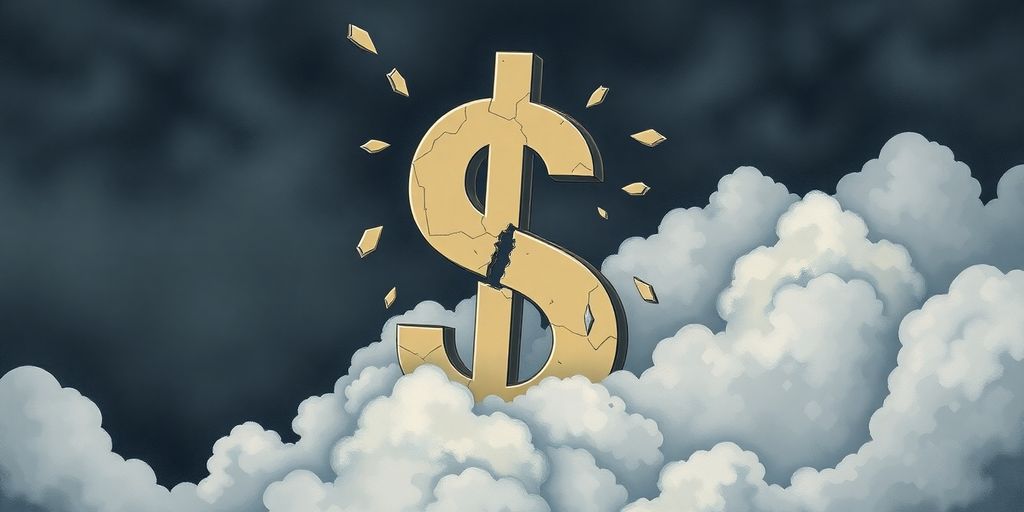Business
US Debt Faces Downgrade Threat Amid Economic Concerns

The United States is facing a potential downgrade of its credit rating, as concerns about rising debt levels and economic stability grow. Analysts warn that if the government does not take decisive action to manage its fiscal policies, the nation could see its creditworthiness questioned, leading to higher borrowing costs and economic uncertainty.
Key Takeaways
- The U.S. government is at risk of a credit rating downgrade.
- Rising national debt and economic instability are primary concerns.
- A downgrade could lead to increased borrowing costs for the government.
- Analysts urge for immediate fiscal reforms to avert potential downgrade.
Understanding The Debt Situation
The U.S. national debt has been on an upward trajectory, surpassing $31 trillion. This alarming figure has raised eyebrows among economists and financial analysts alike. The debt-to-GDP ratio is a critical indicator of a country’s financial health, and the U.S. is currently facing challenges in maintaining a sustainable level.
Factors contributing to the rising debt include:
- Increased Government Spending: Stimulus packages and social programs have significantly increased expenditures.
- Economic Slowdown: Slower economic growth has led to reduced tax revenues, exacerbating the debt situation.
- Interest Payments: As debt levels rise, so do the interest payments, creating a vicious cycle of borrowing.
Implications Of A Downgrade
A downgrade in the U.S. credit rating could have far-reaching consequences, including:
- Higher Borrowing Costs: Investors may demand higher interest rates to compensate for increased risk, leading to higher costs for government borrowing.
- Market Volatility: Financial markets could react negatively, leading to increased volatility and uncertainty.
- Impact on Global Economy: As the U.S. dollar is the world’s primary reserve currency, a downgrade could affect global financial stability.
Calls For Action
In light of these concerns, experts are calling for immediate action from policymakers. Suggested measures include:
- Fiscal Responsibility: Implementing stricter budget controls and reducing unnecessary expenditures.
- Tax Reforms: Revising tax policies to increase revenue without stifling economic growth.
- Long-term Planning: Developing a comprehensive strategy to manage debt sustainably over the long term.
Conclusion
The looming threat of a U.S. debt downgrade serves as a wake-up call for policymakers. With rising debt levels and economic uncertainties, it is crucial for the government to take proactive measures to restore confidence in its fiscal management. Failure to act could not only jeopardize the nation’s credit rating but also have significant implications for the global economy.
-

 Press Release3 days ago
Press Release3 days agoClinical Trials Market Set for Robust Growth, Driven by Drug Development Surge and Digital Innovation
-

 Press Release6 days ago
Press Release6 days agoBellarium ($BEL) Price Prediction: Could It Hit $5 by 2026?
-

 Business5 days ago
Business5 days agoHow Managed IT Solutions Help Small Teams Compete at Enterprise Scale
-

 Press Release4 days ago
Press Release4 days agoIndustrial Boiler Market Expected to Surpass USD 24.4 Billion by 2035 Amid Growing Demand for Energy Efficiency and Industrialization
-

 Press Release4 days ago
Press Release4 days agoFill-Finish Pharmaceutical Contract Manufacturing Market Expected to Flourish Amid Biopharmaceutical Boom and Global Outsourcing Trend by 2035
-

 Press Release4 days ago
Press Release4 days agoPreventive Vaccines Market to Witness Strong Growth by 2035
-

 Press Release4 days ago
Press Release4 days agoGreen Bio Chemicals Market Poised for Sustainable Growth amidst Global Shift to Eco-Friendly Alternatives by 2035
-

 Press Release4 days ago
Press Release4 days agoPet Food Nutraceutical Market Set for Robust Expansion Amid Rising Demand for Pet Wellness by 2035










